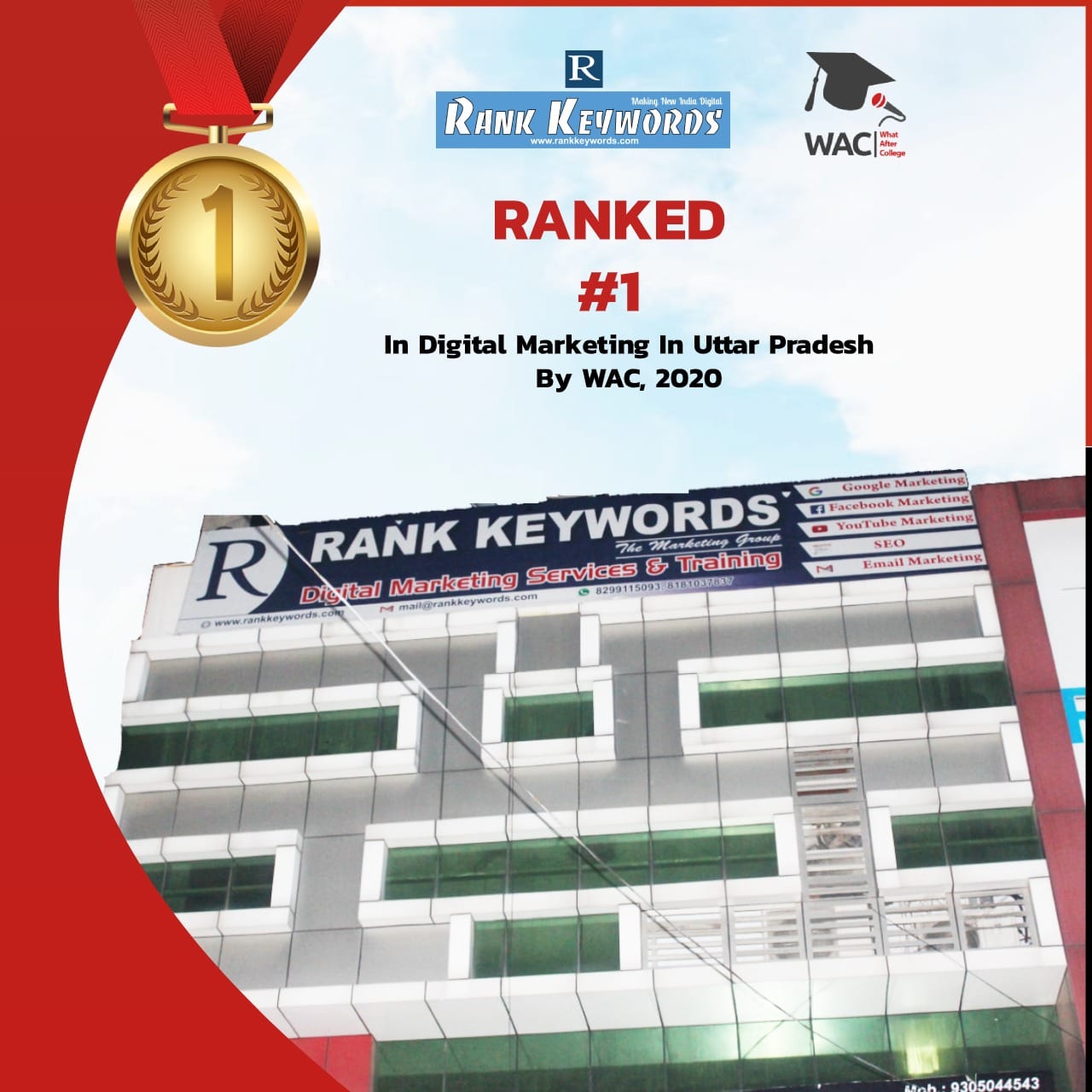Learn & Grow With Experts
A glimpse into our learning environment and student success.




Join North India's Best Training Institute for Digital Marketing, Coding, Graphics Designing, and Video Editing.
View Batch DetailsA glimpse into our learning environment and student success.




We provide industry-leading training programs designed for 100% job placements.
Master SEO, SEM, SMM, and 50+ AI-integrated modules.
Learn web and app development from scratch with live projects.
Bring your creative visions to life with professional design tools.
Produce high-quality, engaging video content for any platform.
A glimpse into placements at Rank Keywords.












We are proud to be awarded for three consecutive years (2020, 2021 & 2022). This recognition fuels our commitment to providing the highest quality education and ensuring the success of our students.

Start your journey with our comprehensive training program, available online and offline.
Learn from founders and industry experts with years of real-world experience.

Founder

Director

Trainer

Mentor
See what our successful alumni have to say about their experience.
Visit us at one of our three locations or get in touch online. We're here to help!
5th Floor, Surya Tower, Just Opposite Kulwanti Hospital Kakadeo Kanpur
+91-8887599932
Sector 34-A, Chandigarh – 160022
+91-6387902411
9/81, Indira Nagar, Near Central Academy School, Lucknow, U.P.
+91-8299115093